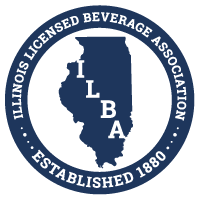Do Americans Drink Too Much? Alcohol Is Driving a Debate in Washington

June 25, 2024
Cathy Sagle
Agencies, lobbyists and lawmakers are fighting over alcohol guidelines due to be updated next year
CHARLY TRIBALLEAU/AFP/GETTY IMAGES
By Kristina Peterson and Julie Wernau
June 24, 2024 5:30 am ET
A fight is brewing in Washington, D.C., over booze.
For nearly three decades, federal dietary guidelines have said it is safe for men to have two or fewer drinks a day, and for women to have one. That could change next year when the Agriculture and Health and Human Services departments update recommendations that are part of federal dietary guidelines.
For the first time, the guidance on alcohol consumption is being considered separately from the dietary guidelines. That has set off a struggle to set the new rules of the game. Government agencies, the alcohol industry and its allies on Capitol Hill have clashed over how much information about the process should be released and who should shape the final recommendations.
Alcohol-industry officials and lobbyists have sent materials to government officials questioning the research methods of scientists drafting the recommendations. Alcohol companies have spent millions of dollars lobbying lawmakers, more than a dozen of whom wrote to HHS and USDA on May 30 demanding more information on the process.
“We don’t want arbitrary decision-making by these agencies that’s not rooted in real science,” said Rep. Andy Barr (R., Ky.), who is co-chair of the Bourbon Caucus, a bipartisan group of lawmakers. The group was founded in 2009 by a lawmaker from Kentucky, which considers itself the birthplace of bourbon, and now has around 40 members.
Guiding Americans to drink less would be a blow to an industry that is already losing some customers. Younger generations have moved away from alcohol over health concerns. For the first time, the U.S. has more daily cannabis users than alcohol users.
“If they want us to drink two beers a week, frankly they can kiss my ass,” Sen. Ted Cruz (R., Texas) said on Newsmax in August of the potential for lower alcohol-consumption guidelines.
Rep. Diana Harshbarger (R., Tenn.), a Bourbon Caucus member, asked HHS Secretary Xavier Becerra at an April hearing why the recommendations require input from two panels: one organized by HHS, the other funded by Congress. He said he would look into it. An HHS official said the panels are using different methods to look at varying questions about alcohol’s effect on health.
Other trade groups have sent letters to the Biden administration requesting more information about the HHS panel and questioning the motives of some of its scientific experts.
The six-member HHS panel includes three researchers whose studies have demonstrated that any amount of alcohol can be harmful: Tim Naimi, director of the Canadian Institute for Substance Use Research; Jürgen Rehm, senior scientist at the Center for Addiction and Mental Health; and Kevin Shield, an independent scientist who runs a World Health Organization center on addiction.
Their research has led a half-dozen countries to recommend that less alcohol is best. The Canadian Center on Substance Use and Addiction advised health officials in 2023 that people should have two drinks or fewer a week to lower health risks. Canada had previously said 15 drinks a week for men and 10 drinks a week for women presented a low health risk.
The WHO said last year that no amount of alcohol is safe, largely based on evidence that it causes cancer. The International Agency for Research on Cancer, or IARC, classifies alcohol as a carcinogen with a risk profile similar to that of asbestos, radiation and tobacco.
“It’s widely accepted that alcohol is a carcinogen,” especially for people having three or four drinks a day, said Christian Abnet at the metabolic epidemiology branch of the National Cancer Institute. Less certain, he said, is whether cancer risk goes up with the first drink.
In 2020, a subcommittee of the federal panel that advises on dietary guidelines urged the government to lower drinking limits, saying both men and women should consume no more than one drink a day. Federal officials in 2020 determined there wasn’t enough evidence to support the change.
Recent studies have corroborated alcohol’s dangers. The IARC published a study in the New England Journal of Medicine in December demonstrating that reducing or stopping alcohol use can lower risks for oral and esophageal cancers.
Alcohol-industry supporters have pointed to other research suggesting that people who drink in moderation live as long or longer than nondrinkers and much longer than people who drink excessively. Telling people there is no safe level of alcohol to consume could push them to disregard the guidance, said Amanda Berger, vice president of science at the Distilled Spirits Council of the U.S.
Naimi, Shield and Rehm have said flaws in previous research masked alcohol’s dangers. For instance, because many former drinkers have health problems from excessive alcohol use, to include them as nondrinkers can increase negative health outcomes associated with people who don’t drink, the three scientists have said.
“I’m trying to inform politicians with the best science possible,” Rehm said.
Naimi co-wrote a study in JAMA Network Open in March 2023 that found alcohol doesn’t make people live longer. He and his co-authors reviewed more than 100 studies on the effect of alcohol in nearly five million people and found no amount of alcohol consumption led people to live longer than people who never drank.
Rep. Jim Costa (D., Calif.), who represents winemakers in the San Joaquin Valley, said recommending that people drop alcohol ignores its value in moderation.
“In a lot of cultures, wine has always been a part of the diet,” he said.
